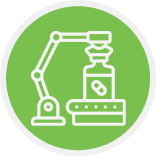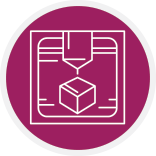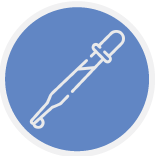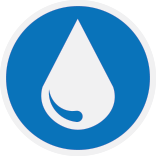Recent advances in DNA sequencing, DNA synthesis and analytical technologies have enabled an in-depth characterization and engineering of biological systems, paving the way for their use in manufacturing a range of products from renewable fuels and chemicals to bio-products, to advanced diagnostics and therapeutics for medical applications.
The Biomanufacturing emphasis aims to prepare students to understand and engineer innovative technologies from developing organs on a chip to engineering protein for various applications in medicine, fuels, chemicals, environmental biotechnology and nutrition.
Students who complete the requirements of the emphasis will have it notated on their transcript.
Program Eligibility
Graduate students registered in the following MEng programs can specialize in the Biomanufacturing emphasis:
- Department of Chemical Engineering & Applied Chemistry (ChemE)
- Department of Materials Science & Engineering (MSE)
- Department of Mechanical & Industrial Engineering (MIE)
You cannot apply to the emphasis directly as a standalone program. If you are a prospective student, you can learn more about applying to our MEng programs here.
Careers
Graduates who complete the Biomanufacturing emphasis are employed by companies in areas including:
- Biotechnology
- Biomedical
- Pharmaceutical
Some of the most common first roles our graduates secure are:
- Process engineer
- Process engineering specialist
- Project leader engineer
Emphasis Requirements
MEng students must successfully complete any four half courses (2.0 full-course equivalents – FECs) from the list below.
Students may double-count a maximum of one (0.5 FCE) course towards any ChemE emphasis (available only for ChemE MEng students), or towards any other emphasis in the Faculty of Applied Science & Engineering.
Some courses may satisfy the requirements of multiple emphases. Students may double-count a maximum of one course towards the requirements of any two emphases.
Students cannot earn more than two emphases.
Courses
- CHE1123H: Liquid Biofuels
- CHE1125H: Modeling & Optimization in Biochemical Networks
- CHE1450H: (formerly CHE1133) Bioprocess Engineering: Fermentation, Cell culture, Bioreactor design, Theory and Laboratory Course, Bioseparations
- CHE1134H: Advances in Bioengineering
- CHE1135H: Climate Change Regulation
- CHE1334H: Organ on a Chip: On-chip engineering of heart, kidney, cancer, vasculature and liver, Regulatory issues
- CHE1471H: Modelling in Biological and Chemical Systems
- BME1459H: Protein Engineering
- BME1480H: Experimental Design and Multivariate Analysis in Bioengineering
- JCC1313H: Environmental Microbiology
- JTC1331H: Biomaterials
Faculty-level MEng emphases:
Questions?
If you have questions about the Biomanufacturing emphasis, please contact Sarah Johns, M.Eng Coordinator & Professional Programs Advisor (ChemE): mengprograms.chemeng@utoronto.ca.
For more information, visit the MEng emphases FAQ page »










